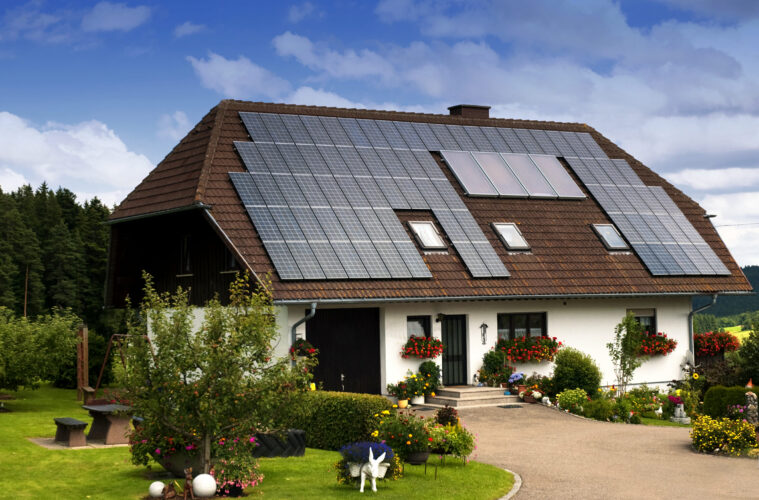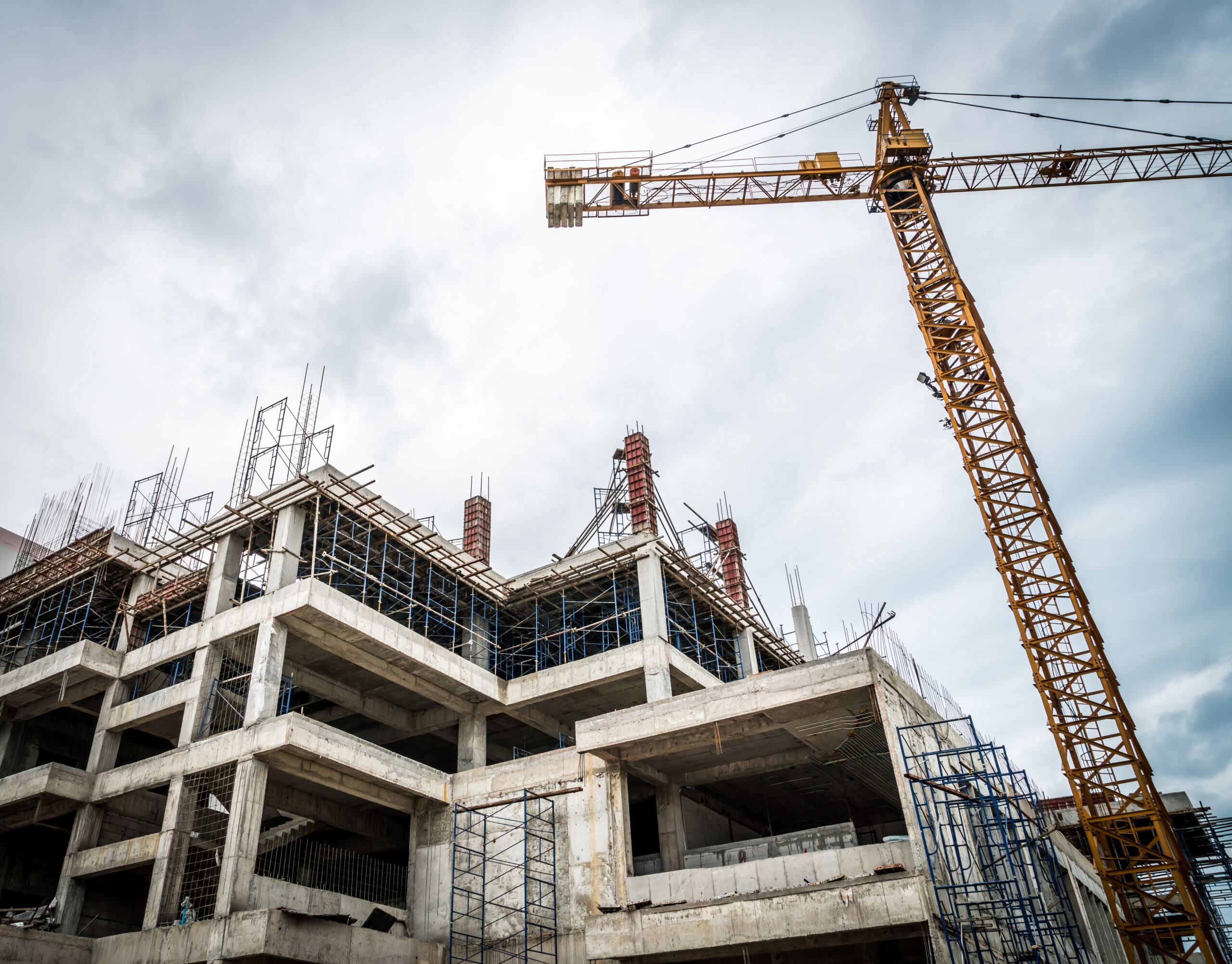You’ve likely seen rooftops lined with solar panels while driving down the highway or on your own road. And you probably understand that solar photovoltaic (PV) panels offer many benefits, such as making your home more efficient, eco-friendly and self-sufficient. You might even find yourself drawn to exploring this exciting alternative energy source.
But you might not know whether your home is compatible with solar panels. It’s one of the most important questions you need to ask before taking this vital plunge and investing in solar panels for home.
Read on to learn if your home is solar panel friendly. We’ll go over how solar panels work, what types of houses are most suitable for solar panel systems and what you need to do to prepare for yours.
Take Some Time to Understand How Solar Panels Work
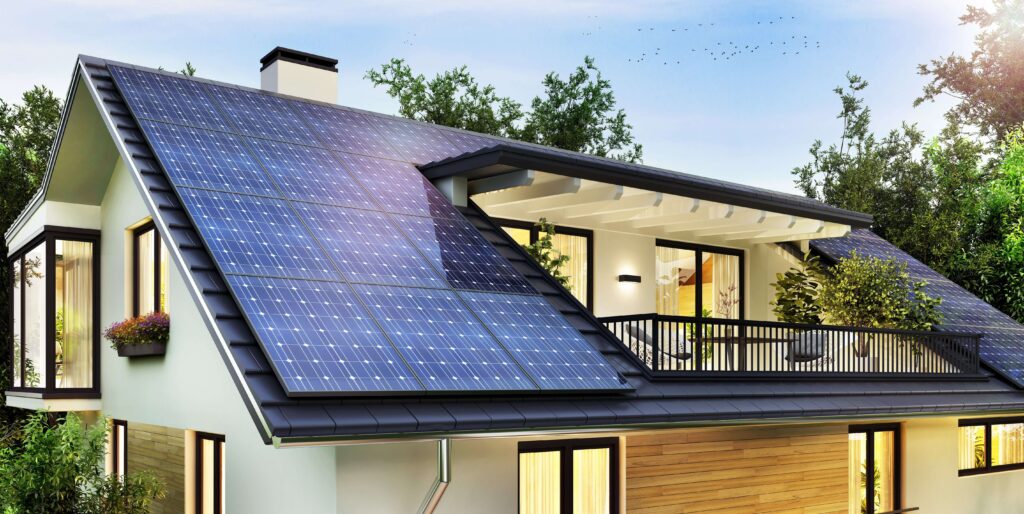
source: pinterest.com
Once you understand how solar panels work, you will also understand why they work better on some home roofs than others.
Solar energy comes from sunlight, which means it is an endlessly renewable energy source, unlike fossil fuels such as natural gas or coal. Solar PV technology takes the sun’s rays, or photons, hitting the solar panel units called solar cells, and turns them into easily accessible and usable electricity via the photovoltaic effect.
The solar cells are made from silicon wafers like those used in tiny computer chips, which manufacturers assemble into solar modules. Once connected, the solar modules turn into familiar rectangular solar panels perched on rooftops.
How to Determine Whether Your Home Is Suitable for Solar Panels
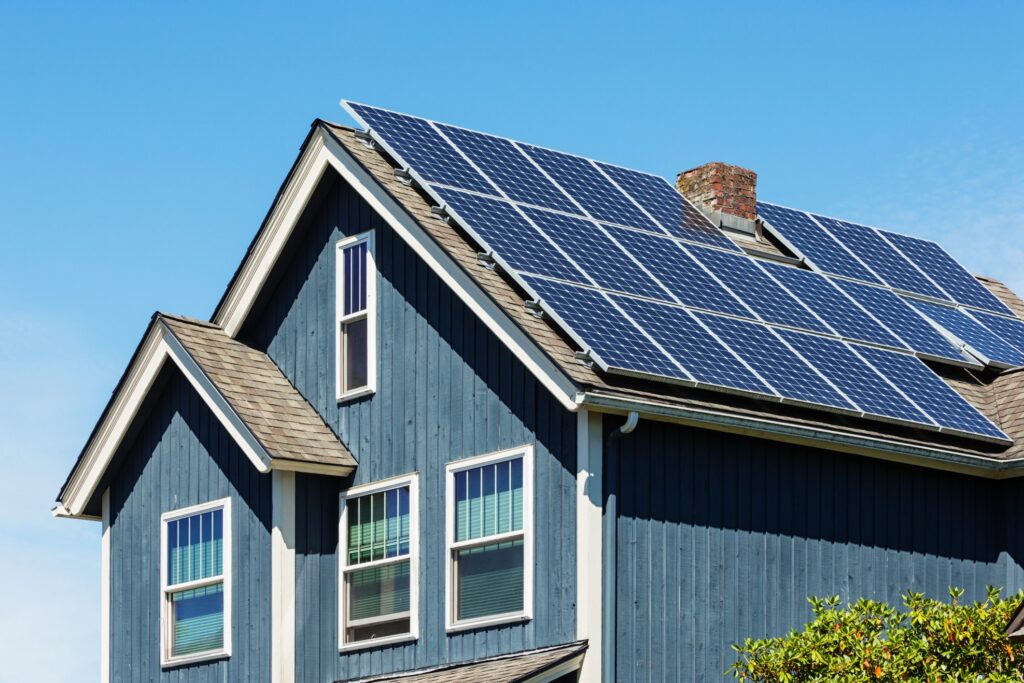
source: pinterest.com
Solar panels are a big financial investment and will alter the appearance of your home, so it makes sense to go over everything to ensure that they will work for you. It is difficult to know where to start if you are new to exploring alternative energy sources.
The first step toward determining whether solar panels are right for your home is reviewing your energy bill. The primary question homeowners need to ask is whether solar panel installation will save money. If you have a monthly electricity bill of at least $75, it’s probably time to start exploring solar energy, because it is the threshold where solar energy users start to see real savings. Remember to explore the solar tax rebate to find out how you can reduce your tax bill by investing in solar power for your home.
Further, you might be ready to focus on alternative energy sources to protect the environment for younger generations, meaning that the cost might not be the ultimate deciding factor as to whether you invest in solar panels for your home.
Regardless of your reason for considering solar energy, your home must be suitable to ensure you reap all the benefits. Fortunately, trustworthy solar panel companies will help lead you through the process of helping determine whether your home is suitable for solar panels and whether they are worth it to you and your family, financially, practically and as a way to reduce your carbon footprint.
What Types of Homes Are Best Suited to Solar Panel Installations?
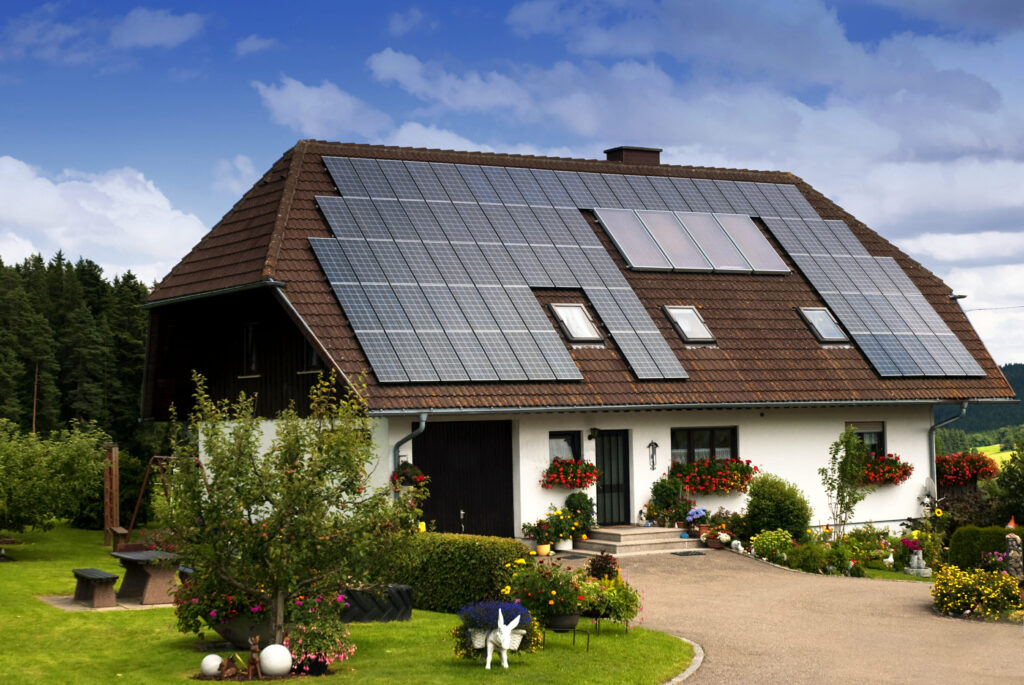
source: pinterest.com
It’s important to consider the type of home for which solar panels are best suited before making such a large investment, which in some cases can cost up to $25,000 upfront. Since the sun is at the center of the equation, it is vital that a home has the most possible sunlight available.
The sunlight factor determines how effective solar panel installation can be, and states such as Arizona, California, Colorado, New Mexico and Texas reap the most benefits. Even states with fewer sunny days can effectively utilize solar panels, making solar energy a possibility for households nationwide.
When working with the best local solar experts, you can get a better idea of how effective solar panels will be based on the alignment of your home’s roof relative to the southern and western skies. If your home has a south-facing roof section, it will be a significantly better candidate than those with east-, west- or north-facing exposures as the sun travels its daily path.
It’s also important to walk around your property and assess whether you have tall trees or other buildings that might block your home’s southern exposure from the sun’s rays. At that point, you and your solar professional can evaluate the obstructions to see if you can come up with a reasonable solution that allows the sun’s rays to reach the solar panels upon installation.
After reading through this guide, do you feel like your home is a good candidate for solar panel installation? Asking yourself the right questions and working with your local solar professionals should help you come to the best strategy to ensure you get the maximum benefits from your solar panels. Looking for trustworthy solar panel installation services Bristol? Look no further than our expert team! Contact us today to experience our affordable and efficient solutions.

